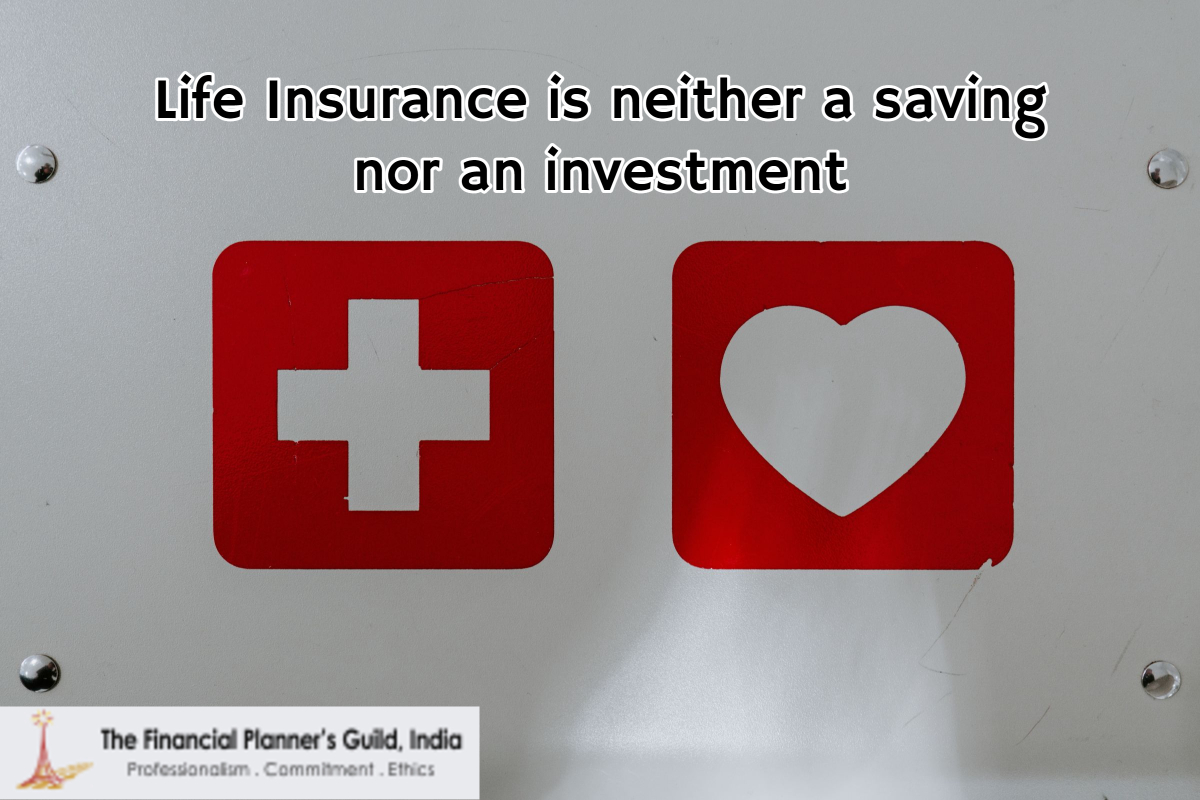
Human beings always search for security and it’s universal. The need for security varies from person to person but feeling of security comes from needs and wants. Sense of security gives us relief from fear and doubt. So civilization demands stabilization not only at present but also in future.
If we see the history of insurance it has been about risk as traders used to sail ships and none of them could avoid risk. The traders of China and Babylon first insured themselves and that way insurance was introduced as long as about 2900 BC with the concepts of cooperative endeavor and sharing of anticipated losses.
Concept of insurance
In the past insurance was considered as risk protection only and the following example can make it easier to understand:
Suppose there are 5,000 houses in an area and the value of each house is Rs. 10,000/-. If experience shows that over a year, 3 houses get damaged due to fire, storm or any other peril and the average loss suffered due to such accident is Rs. 10,000/- in each case. The total loss was amounting Rs. 10,000*3 = Rs. 30,000/- per year, which they shared among 5,000 houses, thus they shared Rs. 30,000/ 5000 = Rs. 6/- each hose which can be called as premium. So sense of insecurity was removed among the community by the joint contribution.
The Premium price depends on statistical analysis and classification of risks and their measurement.
Considerations while buying insurance
While you buy insurance sometimes you become confused due to your own misconception or sales pitch. You take it as an insurance, investment and tax savings tool and thus you pay big premium and get less insurance coverage. I always recommend my clients to take only insurance coverage from insurance companies. Don’t dilute insurance with investment. When you invest the following five areas need to be considered.
If you invest prudently you can reduce risk and maximize your return.

Insurance may be classified into three broad categories
Life insurance is protection against two distinct risks: premature death and superannuation. Death at any age is probably considered as premature but superannuation (long live) is not considered as undesirable contingency.
While you can’t control or absorb risk you must share on the basis of cooperative concept, pay the least premium and get the most/adequate insurance benefits.
What is adequate coverage? You know the value of tangible products like car, house, TV, which are the effects and you are the cause. Even your car or house or both are adequately covered than you. Why does it happen? I generally ask my clients to make them understand, “how much you will leave for your family if you move to another place without your family for one month? The answer may be Rs 50,000 p.m.! Then again I ask, what if the period of absence is 12 months. The answer comes as Rs. 6, 00,000 ( Rs. 50,000*12 ). Then I ask them to add inflation. And finally I ask them if you don’t come back to your family anymore? Means if you die! I help them to realize about the need for insurance based on dependents, liabilities, responsibilities, unfinished commitments etc. It may start from Rs. 1 Crore to any amount. For 1 Crore if you go for traditional insurance how much you have to pay? May be Rs. 6, 00,000 p.a., but instead if you pay Rs. 13,000 p.a. (depending upon your age) you get a coverage of 1 Crore and if you invest the rest of the amount with proper asset allocation you can beat inflation. But in insurance a traditional product may give you maximum 5% to 6% return. On the other hand if you invest in ULIP, it might give more than traditional products but it might take longer to give you returns.
Avoid emotional buying
First you insure yourself and if your wife is home maker, in case of any eventuality she will lose you and your income. But God forbid if anything happens to her you will lose her and not income. Whose insurance is needed the most? Again, if you die, your wife has to pay her premium. How will she manage without income?
Similarly don’t go for child’s insurance; again consider the concept of insurance. You invest separately with proper asset allocation by keeping in mind his/her inflated educational/marriage costs. But if you take study loan, you must go for the least cost insurance plan on the life of your child. I witnessed this close at hand. My client took Rs. 16, 00,000 educational loan from Bank and sent his only son to U.K. for higher studies and gave his residential flat as collateral to the Bank. Unfortunately he lost his son and had to surrender his residence to the Bank as he was unable to repay the loan. I had repeatedly asked him to take adequate life insurance for his son, but he ignored. Here is a case of emotional plus financial loss.
Pure insurance in the form of term insurance offers the best protection. While taking a plan, consider the claim settlement ratio. Insurance is not for investment nor tax savings. For savings and investments, it’s always better to choose separate tools available in the market based on your time horizon and risk appetite. Investment method differs from person to person. Investment decisions are influenced by waiting period, ability to withstand risk and age of the investor. When investments are made in equities, they should be continued for five to ten years. If you invest with proper asset allocation and rebalance the same over a predetermined period you can get good return and reduce investment risk.
Insurance is the most-sincere love letter to your family.
FPG India ©2024. All Rights Reserved.
Designed & Developed by W3M Technoz
Comments are closed.